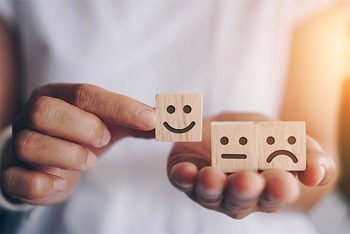
This online coaching group will provide a confidential, safe, and welcoming environment for men to explore and discuss the general issues they face.
Dates: Coming Soon - Register your Interest

With Men’s Health Week here (10th-16th June), I’ve been thinking about some of the widely-held misperceptions about the average male’s attitude to health, and how they might be addressed.
There is no doubt that in many countries, including Australia, men have poorer overall health outcomes and shorter life expectancy than women. In this country, for instance, males are more likely to die from cardiovascular disease and injuries than females, and prostate cancer takes a heavy toll. These deaths are very often preventable.
Men are similarly over-represented in mental health statistics. The suicide rate is three times higher for males. Help is available, but sadly, 72 per cent of males simply do not seek assistance.
It would be wrong to conclude that men do not care about their health. My clinical experience tells me that in fact, men think about their health and want to talk about it. They can experience great relief from those discussions and their health outcomes benefit.
Here are some tips, based on research, that can help men seek support:
Some questions and considerations men might do well to take on board:
By Francesco Poci June 12, 2020

In this group, we will explore your experience of anxiety, define your specific concerns, and develop interventions and ways to reduce anxiety and its impact.
Dates: Coming Soon - Register your Interest

By attending this group therapy, you will gain confidence and skills to manage and regulate your emotions effectively, and how emotions function over time.
Dates: Coming Soon - Register your Interest

By attending this online coaching group, you will learn to activate processes of change, manage maladaptive patterns and errors of judgment that have hindered your.
Dates: Coming Soon - Register your Interest
Photo by Matheus Ferrero on Unsplash
Relevant links:
https://www.menshealthweek.org.au/
https://www.psychologymelbourne.com.au/psychology-counselling/mens-counselling
https://www.healthymale.org.au/
https://www.betterhealth.vic.gov.au/health/conditionsandtreatments/mens-health
https://www.beyondblue.org.au/mental-health/statistics
https://www.healthdirect.gov.au/mens-health
https://www2.health.vic.gov.au/alcohol-and-drugs/aod-treatment-services
References
1. Murray CJ, Ezzati M, Flaxman AD, Lim S, Lozano R, Michaud C, et al. GBD 2010: design, definitions, and metrics. The Lancet. 2012;380(9859):2063-6.
2. World Health Organization. The men’s health gap: Men must be included in the global health equity agenda. [Internet] 2020 [cited 2020 May 24]; Available from: https://www.who.int/bulletin/volumes/92/8/13-132795/en/.
3. The Royal Australian College of General Practitioners. Male and female health: Side by side. [Internet] 2018 [cited 2020 May 24]; Available from: https://www1.racgp.org.au/newsgp/clinical/men%E2%80%99s-and-women%E2%80%99s-health-side-by-side.
4. Australian Government Department of Health. Mens health: National men’s health strategy 2020-2030. [Internet] 2020 [cited 2020 May 24]; Available from: https://www1.health.gov.au/internet/main/publishing.nsf/Content/national%20mens%20health-1#:~:text=National%20Men's%20Health%20Strategy%202020,men%20and%20boys%20in%20Australia.&text=The%20Strategy%20aims%20to%20drive,men%20and%20boys%20in%20Australia.
5. Tudiver F, Talbot Y. Why don't men seek help? Family physicians' perspectives on help-seeking behavior in men. Journal of Family practice. 1999;48:47-52.
6. O’brien R, Hunt K, Hart G. ‘It's caveman stuff, but that is to a certain extent how guys still operate’: men's accounts of masculinity and help seeking. Social science & medicine. 2005;61(3):503-16.
7. Smith J, Braunack-Mayer A, Wittert G. What do we know about men's help-seeking and health service use? 2006.